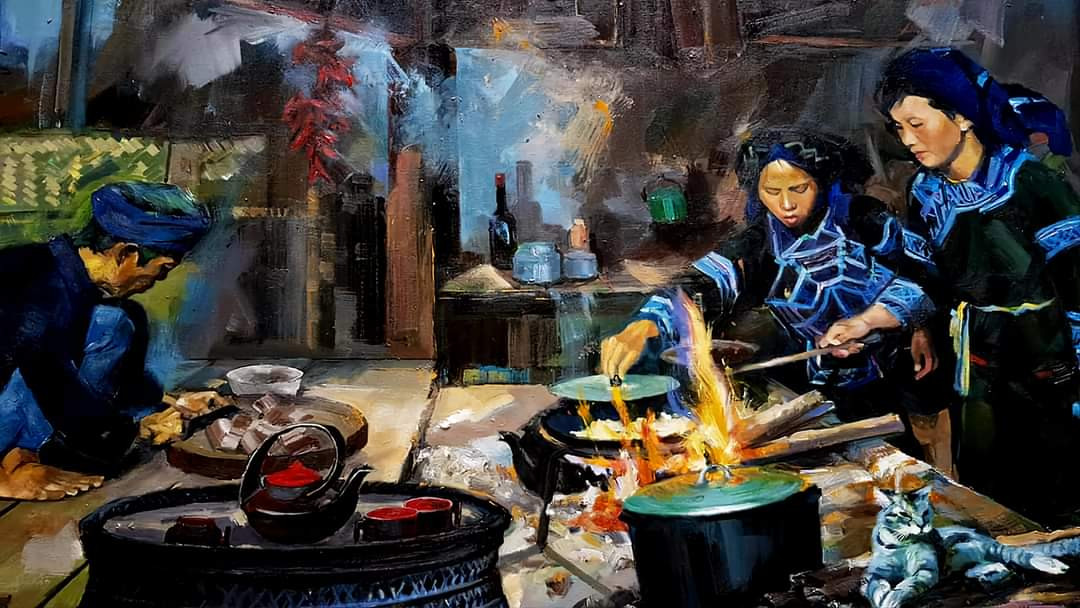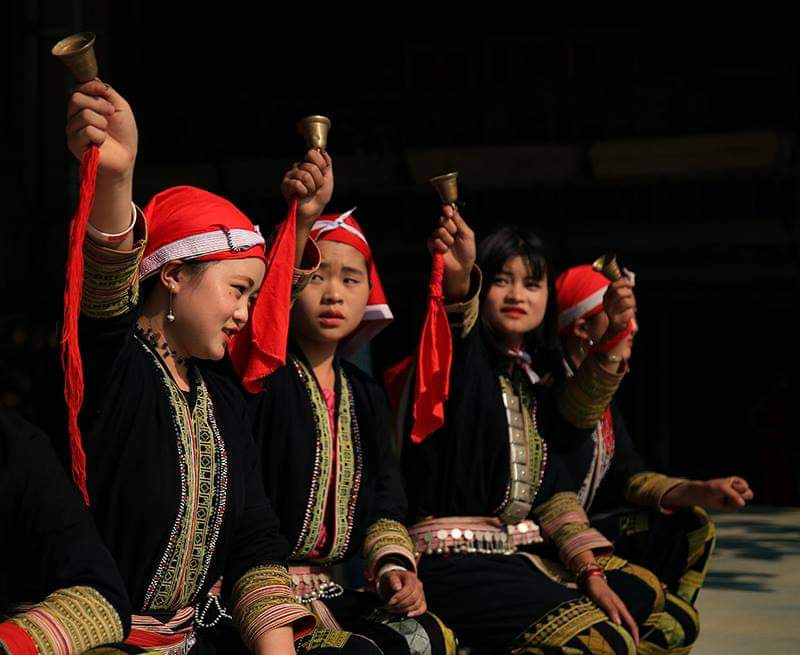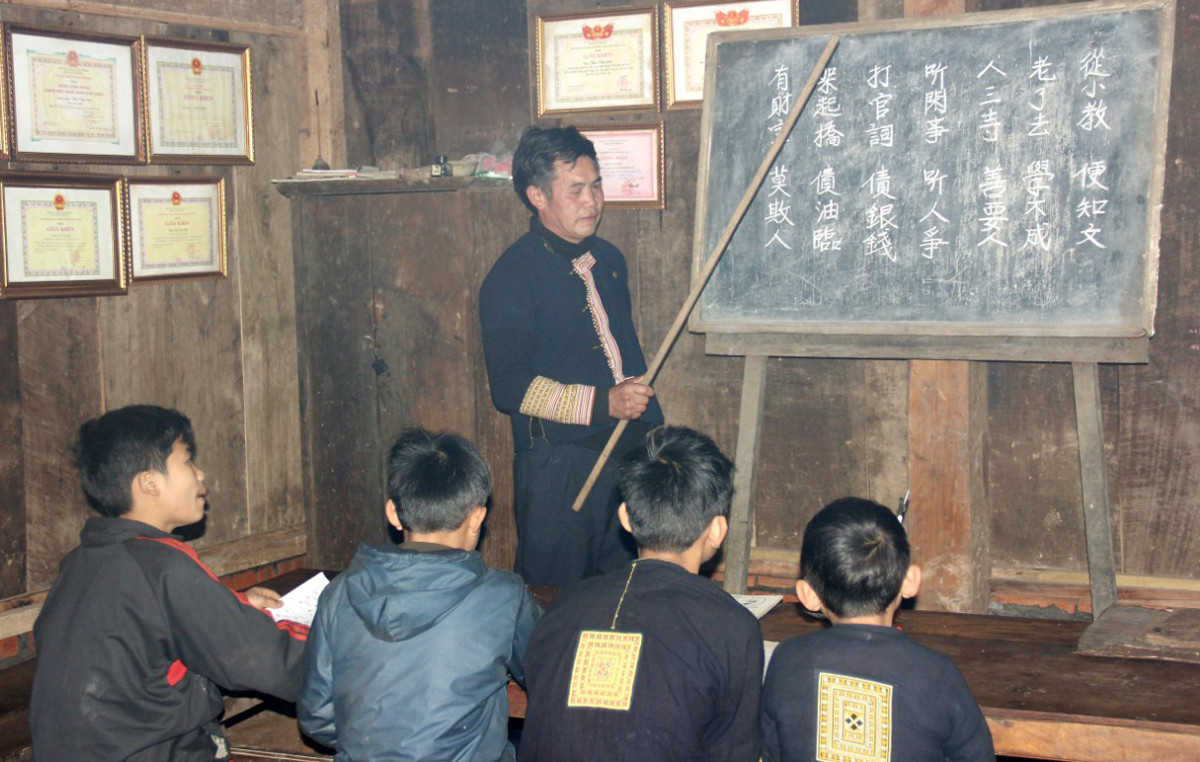Keep the forest green
Every village in Den Sang commune (Bat Xat) has a forbidden forest, a sacred forest located in the most beautiful location in the village, where there is full convergence of the spirit of heaven and earth to worship the forest god according to the "inviolable" regulations. Worshiping the forest god is a Red Dao ethnic group belief that has been passed down through generations and has become a cultural beauty. |
| During the forest worshiping ceremony, the people of Den Sang village elected to protect the village's forest. |
The village rules have been established, and every year on the first or second of the lunar calendar, the Red Dao ethnic people of Den Sang village, Den Sang commune, hold a sacred ceremony in the village's forbidden forest to ask the forest god for good luck and peace. This is also an opportunity to educate people about the importance of protecting green forests.
The village head assigns work to each household in order to prepare for the forest worshiping ceremony. In addition to the main pig offering made by the host family, depending on the circumstances, each household in the village brings voluntary contributions such as chicken, wine, and paper money. Every year, according to tradition, one household will be in charge of the ceremony and responsible for preparing offerings to the forest gods. The celebrant prepares two local-bred black pigs weighing at least 5 kg for the offering.
On the day of the forest worshiping ceremony, the households in the village get up early to clean their houses and prepare the altar to worship their ancestors. Each household appoints a male representative to the sacrifice site to clean the area around the altar to worship the ancestors and the forest god, and bring offerings such as incense, wine, rice and paper of the village.
 |
|
The people of Den Sang village bring offerings to the forest to worship the gods. |
Two shamans attend the forest worshiping ceremony, one who makes offerings to the ancestors of the families in the shack and the other who makes an outdoor sacrifice to worship the gods, heaven, and earth. The shamans must be trustworthy, knowledgeable about customary laws, and chosen by the people of the village. The first is the incense offering ceremony, which includes giving offerings and reading offerings to invite forest gods and ancestors of families to attend and witness the people's sincerity. The worshiping ceremony is held every year to ask the forest god to bless and protect the entire village for a year of favorable rain and wind, good crops, a peaceful and healthy home, and rapid growth of domestic animals...
During the forest worshiping ceremony, there will be a village meeting to discuss village issues and regulations on forest protection and management, as well as to re-elect members to the village's forest protection team. The Red Dao people of Den Sang village established rules for the entire community to follow in order to protect the forbidden forest, such as not cutting-down trees, lighting fires, hunting in the forbidden forest, taking firewood, or grazing animals in the forbidden forest.... All acts of forest encroachment must be punished in accordance with regulations.
During the ceremony, the village's elderly will pass on to the next generation the responsibility of protecting and developing the forest. For a long time, the Dao people's source of water for production, daily life, and precious medicinal herbs used for treatment will be entirely dependent on the responsibility of preserving forests for future generations.
According to Mr. Ly A San, Vice Chairman of the Den Sang Commune People's Committee, "worshiping the forest god is an ancient tradition that has a significant impact on the spiritual life of the local Red Dao people." The worshiping ceremony fosters community cohesion by raising awareness of the importance of preserving and contributing to the protection of forest resources for today and the future.















